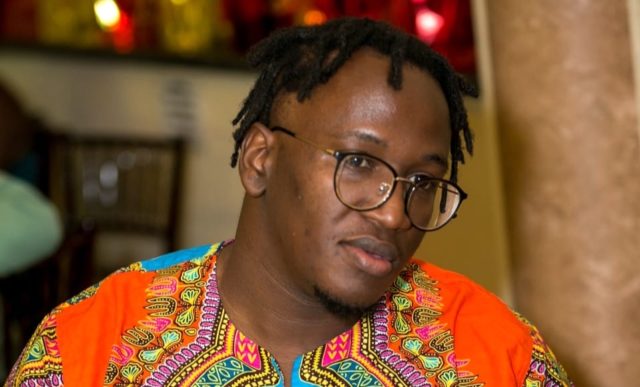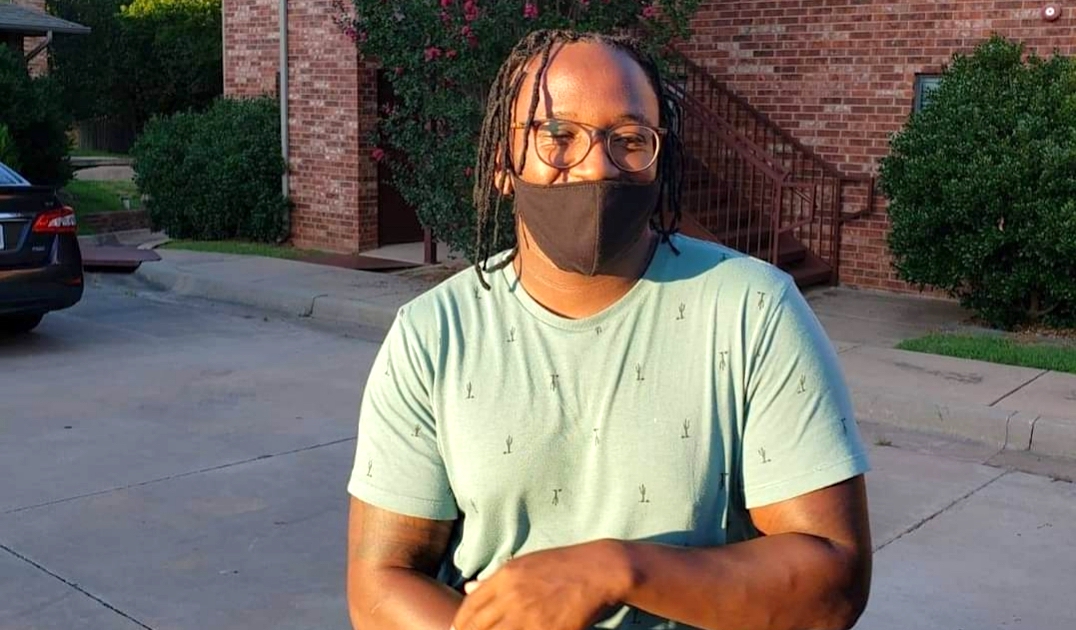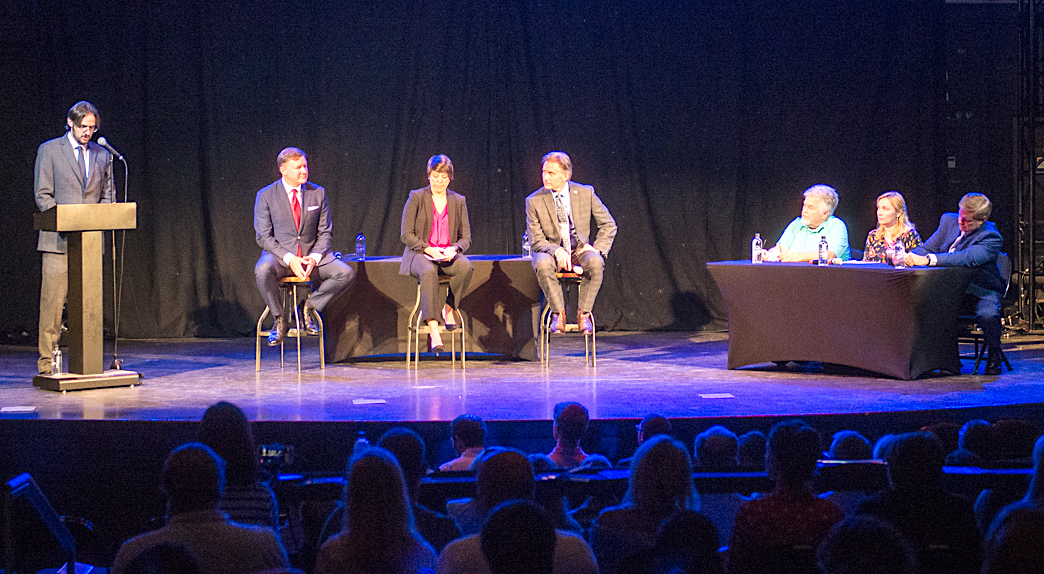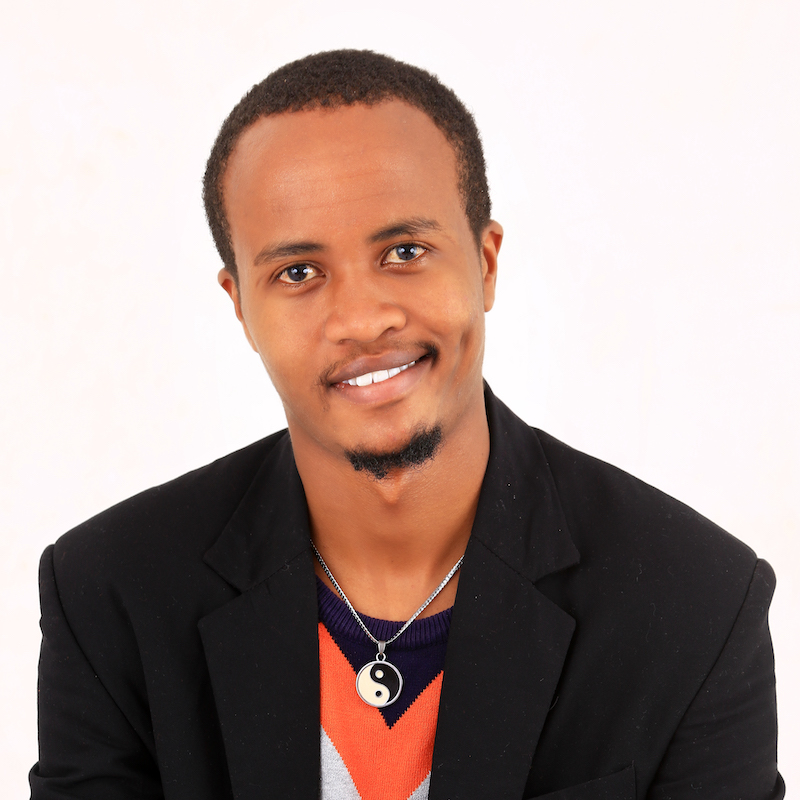
NAIROBI — On a cold Friday morning in September 2019, a young Kenyan man woke up early in Nairobi, eager to fly to the United States. Had he really slept at all? With the joy and anxiety of traveling to the U.S. for the first time, it must have been hard to rest the night before.
This is the story of the obstacles faced by this young man — and how he overcame them — in his quest to study abroad in Oklahoma, a place where I have my own connections thanks to the internet and the written word. The man’s name is Philip Mwaura Njoroge, who already held a degree in International Relations from the United States International University-Africa (USIU-Africa), a private university in Kenya.
By 6 a.m., Njoroge had arrived at the Jomo Kenyatta International Airport, his suitcase dragging behind him. By 8 a.m., he was aboard a plane, his journey to pursue a masters in political science at the University of Central Oklahoma commenced. Behind him were winding roads; a journey that led him to this very moment. A few seconds after the in-flight passenger take-off announcements, Njoroge closed his eyes and mumbled an orison. Thank you, God.
‘It’s amazing how many kind-hearted people are out here’

In 2015, Njoroge joined USIU-Africa as an ambitious young man with a thirst for knowledge. He did his best in school, and it showed in 2018 when he graduated. He was ready to go out and make a difference in Kenya, but his first obstacle was finding an internship.
After scouring for opportunities, writing emails and personally delivering applications to offices, Njoroge was lucky to get an opening at Nyayo House, Nairobi, a tower with a dark history that houses a number of government departments. There, he joined the Immigration Department. His work entailed processing work permits and student visas for foreigners coming into the country.
While working at Nyayo House, Njoroge made up his mind that he wanted to further his studies in the United States and add a masters degree as a glorious feather in his cap; a feather none in his family had.
He applied to the University of Central Oklahoma, a university he chose after a lecturer at USIU-Africa advised him, citing its excellent academic record. Soon, he got an offer letter. He applied for a visa and aced an interview at the embassy. Then came the challenge of financing his endeavor. Through his savings and funding from his mother, he paid for his ticket.
Everything went well until a few days before his flight, when suddenly it didn’t. An unexplainable facial muscle paralysis struck him. The doctors diagnosed him with Bell’s palsy, a curveball that would temporarily disfigure his face and render him a poor speech-maker.
“Because of the disease, I had to travel to the U.S. three weeks late,” Njoroge told me via WhatsApp. “At the airport in Qatar where I had my transitory stop and waited for 12 hours to connect a flight to Dallas Texas, I remember these Chinese women who engaged me in a conversation, but I was afraid to speak. I had healed from Bell’s palsy, but I still wasn’t confident in my speech.”
Thinking that his troubles had dissipated after overcoming the Bell’s palsy episode, another hurdle awaited Njoroge in Oklahoma. He did not know anyone there, he was three weeks late for the fall semester, and he had not cleared his fees.
“They said I couldn’t go to class. I was scared, man,” Njoroge recalled. “What the hell was I supposed to do, considering that the only person I knew in the U.S. was the one in whose skin I stood? But somehow, things worked out. My mother sent me money from Nairobi, and I cleared my fees.”
As long as Njoroge could play catch-up in class and handle the situation like a pro, he would be enrolled and allowed to go to class. He just needed a place to live.
“A friend’s friend, (who is) Kenyan, hosted me,” he said. “It’s amazing how many kind-hearted people are out here.”
Learning a new culture, surviving the pandemic

Philip also made a new friend, James Coburn. A poet and former journalist for The Edmond Sun, Coburn is my good friend, and I had called him to say Philip was coming to Oklahoma. They connected, and Coburn offered to show Philip around. The world really is a small place.
I met Coburn in 2016 through online poetry spaces. He edited my manuscript and wrote a great review of my first book, Around the Campfire, and he also introduced me to NonDoc Media, where I became a contributing author in 2017. Coburn keeps up with my articles published on Qazini, and now, years later, my friend Philip was studying in the same town where Coburn lived!
“I knew [Philip] had ambition and drive merely by the fact he traveled across an ocean to satiate his curious intellect,” Coburn told me. “When I met him over a cup of coffee, he seemed flexible in his adaptability. And I knew that he would bring his dreams to fruition.”
Coburn spoke of my friend’s kindness.
“He brought me some tea cultivated, produced, and packed in Kenya,” Coburn said.
With the new friends Njoroge was making, he was well on his way to settling down and dealing with the tedium of classes and school assignments.
“It was tough,” Njoroge conceded. “You have a new culture to learn, anxiety cloaks you, you must work [after] classes to raise school fees, and then there is school work demanding that you sit and study.”
Two things kept him going: One, an itch to prove wrong some of his folks back in Kenya who did not believe in him; two, a deep-rooted resolve to prove to himself that he was capable of achieving a masters degree in America. That motivated him to land a job in Edmond.
“That’s how I was able to eke out a living and pay my school fees,” he said.
In 2020, Njoroge graduated, a momentous occasion that he said stood as one of the best achievements of his life. The event, however, dragged along a major disappointment. COVID-19 had hit the world, and his mother could not travel to be present on graduation day, as was his dream. Still, he was happy having made it, but COVID-19 was not done with him.
“In the wake of the coronavirus, I had a scary episode,” Njoroge said. “I think I was among the first people in Oklahoma to catch the bug.”
One Friday evening, his car conked out and a friend came to pick him up. He had taken a COVID test on Wednesday.
“While my friend was driving me home, the hospital called,” he said. “I had caught COVID.”
Njoroge began to stress, thinking that his life perhaps was coming to an end. A friend back home had died of COVID. Njoroge tried to hang tough. He ate healthy, self-isolated and attempted to exercise like never before.
“I would test twice a week, and the results kept coming back positive,” he said. “I never gave up. Until this day when the results came back negative. Oh, how I went limp with relief.”
I asked Njoroge how much he misses home.
“I miss my mum, though we talk every week on video calls,” he said. “I miss my friends back in Kenya, the hang-out places we used to go to, and the ‘matatu’ culture in Nairobi.”
Matatus are public transport vehicles that ferry people from one place to another. They have a “tout” who calls out to customers at the stage, fills up the bus and collects fares. The Nairobi matatus are known for cool music that rattles from inside.
I have been told that Oklahoma’s public transportation system is less exciting.
You can achieve your dreams
I later spoke to Steve Muriithi, an expert on sustainable development goals in Kenya who went to USIU-Africa with Njoroge. I wanted to know what he thinks of my friend.
“Phil is very driven. Guy barrels through obstacles; they never stop him even in uncertainties,” Muriithi said. “He keeps asking me to think about my future and advance my studies.”
Talking with Njoroge myself, I can tell he has fallen in love with Oklahoma. He calls it the land of numerous opportunities, pleasant weather and great people. (My NonDoc editor said he questions the assessment of “pleasant weather.”)
Njoroge has a work permit and is currently job-hunting. He said that the obstacles he overcame on his way from Nairobi to Oklahoma have made him stronger and more driven than ever. His journey stands as a good reminder that life is not easy, but if you don’t give up you can achieve your dreams.
“The easy path is always tempting, but the difficult path is always rewarding,” Njoroge said.






















